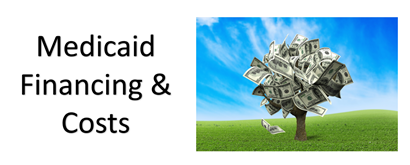MM Curator summary
One of the Medicaid components of the $2T pandemic bill would be a 7% for HCBS services.
The article below has been highlighted and summarized by our research team. It is provided here for member convenience as part of our Curator service.
The House Energy and Commerce Committee has proposed some major Medicaid provisions to the $1.9 trillion relief package making its way through Congress. If enacted, the measures would benefit home-based care providers across the U.S., at least in the short term.
Specifically, the draft legislation includes a two-year, 5% Federal Medical Assistance Percentage (FMAP) boost for states that recently expanded their Medicaid programs. It also features a 7.35% rate bump for states to specifically enhance home- and community-based services (HCBS) during the public health emergency.
“The legislation provides for flexibility on how state Medicaid programs participate and where to use the additional funding,” Dave Totaro, chairman of the Partnership for Medicaid Home-Based Care (PMHC), said in a statement shared with Home Health Care News. “PMHC strongly encourages states to work with HCBS stakeholders, including providers, to identify the areas of greatest need for these important resources.”
Advertisement
The Washington, D.C.-based PMHC is an industry advocacy group that represents home- and community-based care providers operating in the Medicaid space.
The bump in Medicaid rates would be crucial for home-based care providers for a few reasons.
For one, cash-strapped providers are dealing with an ongoing pandemic and all the added expenses that come with it, such as costly personal protective equipment (PPE) and hazard pay for courageous workers manning the front lines.. Additionally, many states are dealing with budget deficits forcing them, in some cases, to uniformly decrease funding for a variety of programs, including Medicaid.
Advertisement
Yet even though the 7.35% bump would be very positive news for all home- and community-based services providers, it’s not a final or complete solution to every problem they face.
“It certainly is helpful, in that it probably reduces the issues that providers and state Medicaid budgets are going to have in the upcoming budget year,” PMHC Vice Chairman Darby Anderson told HHCN. “But it’s probably, in and of itself, not enough to make them all go away.”
In other words, a 7.355 bump wouldn’t be a panacea to all state budget problems. With that in mind, PMHC is still advocating for more direct aid to states and localities, Anderson noted.
Any boost to state Medicaid programs is meant to supplement — not supplant — existing funding, the draft legislation clarifies. Examples of HCBS groups it calls out include home health providers, personal care services agencies, case management entities, PACE organizations and others.
Examples of what the additional funding can be used for include generally increased rates for HCBS providers. The potential boost can also specifically be used to purchase PPE, enable hazard pay, recruit new workers or support appropriate time off for front-line workers.
The added Medicaid money could additionally help states shift more individuals out of facility-based settings back into their homes and communities.
Despite all of those benefits, the increase’s temporary nature also raises some concern.
As the debate continues in regards to a permanent $15 minimum wage, home-based care insiders are concerned that reimbursement won’t match a mandated wage increase in the future.
The groundwork for a $15 minimum wage increase was included in the proposed relief package.
“As Congress debates increasing the federal minimum wage, PMHC is advocating to incorporate a requirement for state Medicaid programs to, at minimum, match the federal minimum wage increase through commensurate increases in reimbursement rates for Medicaid HCBS,” Totaro said. “The additional, temporary FMAP payment for HCBS cannot be considered a full solution to address the minimum wage issue.”
While PMHC is pleased with the temporary funding increase for home- and community- based services during the pandemic, it’s calling for more specific and permanent resources to be put into place if the federal minimum wage does increase.
If there is a failure to require and support states in increasing reimbursement rates to match, PMHC believes it will further limit both access to care delivery and limit HCBS providers’ ability to recruit workers.
“Matter of factly, in a lot of states, these are minimum wage positions. And we don’t believe they should be, but they’re largely affected by it,” Anderson said. “And so it’s a significant thing. But I don’t want our concern over a minimum wage to diminish the enthusiasm around this proposal, because I think it’s very positive. But minimum wage is a significant threat.”
Beyond the HCBS items, the House Energy and Commerce Committee proposal also would institute Medicaid drug rebate caps and dole out $14.2 billion for vaccine-related activities.

